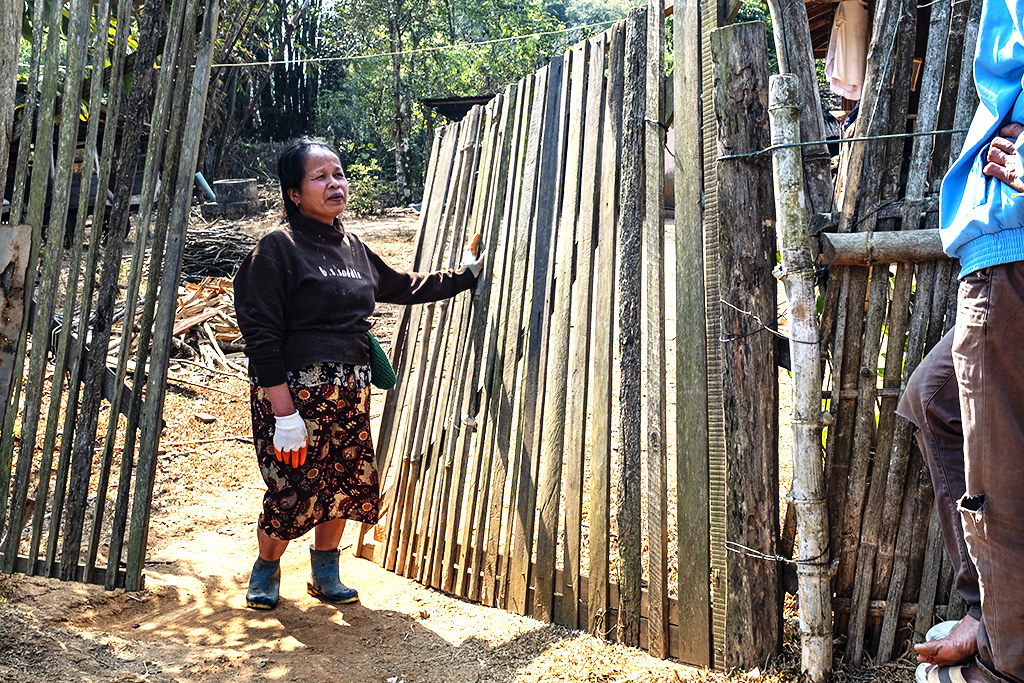.
To the right is Trung, a 50-years-old Vietnamese tuk-tuk driver I hired yesterday to take me around. His grandfather came to Laos, "to help the Lao Revolution," and his father and two older brothers also fought for the Communist cause here. As a reward, the Vietnamese government has given one of Trung's two children a college scholarship in Vietnam, and the kid's been there three years, with everything paid for, including food and lodging. "I'm hoping my younger son will also get a scholarship, but you have to be a great student to get one."
Trung himself has never been to Vietnam. His wife is Lao. In day to day life, people here have no idea that he's Vietnamese. Trung's Vietnamese is very good, however, and we communicated comfortably, with his Ha Tinh accent the only small glitch.
Even if he goes back to his ancestral village of Duc Tho, who will acknowledge him? And if they do, he's expected to bring gifts, for he's an overseas Vietnamese after all, a Viet Kieu. They do not know that he must eke out a bareboned existence in a very poor country.
The Phonsavan area is actually Hmong territory, so passing cars and buses were still shot at until the 80's. They didn't want Vietnamese or even Laos to be here, and it was the Vietnamese who subdued the Hmong. "Only we could do it," Trung said. "We cleaned them from the caves."
The famous Hmong leader, Vang Pao, is from this province. He's born in Nonghet, 72 miles from where I'm writing. Vang Pao died in California.
.

No comments:
Post a Comment